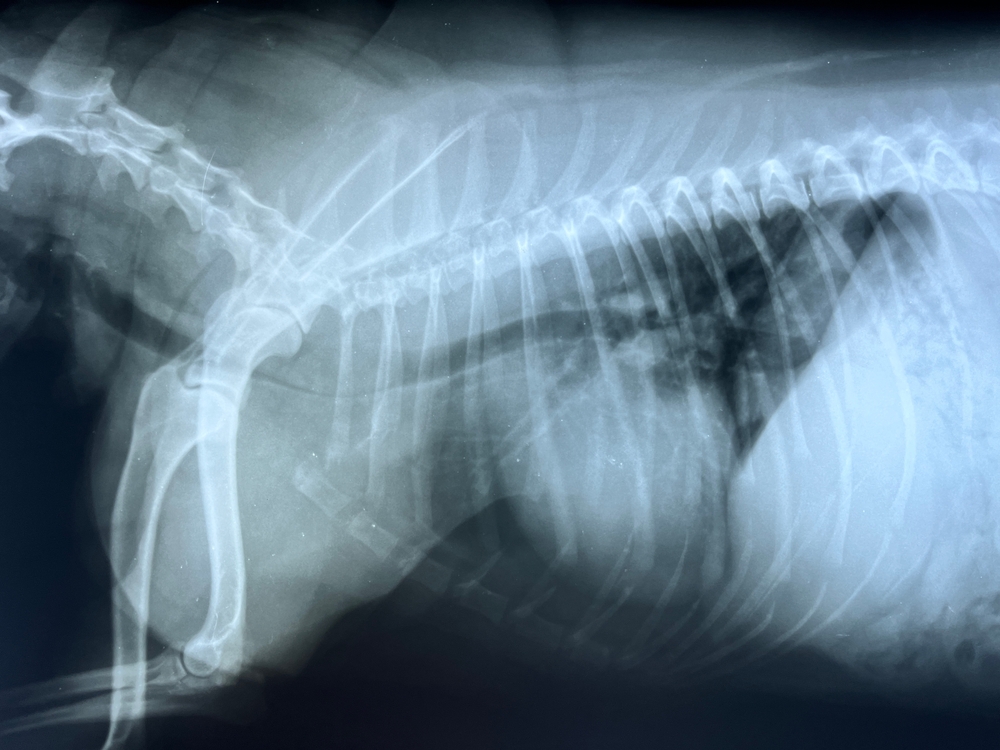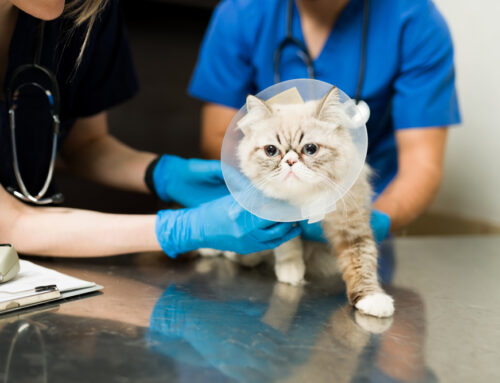Your pet’s heart plays a vital role in their health and well-being. Veterinary cardiology is a specialized veterinary field dedicated to diagnosing, treating, and managing heart diseases and disorders in pets. Our Stack Veterinary Hospital board-certified veterinary cardiologist, Dr. Eva M. Oxford provides comprehensive care for pets experiencing heart conditions to ensure the best possible outcomes. Read our guide to veterinary cardiology.
What is a veterinary cardiologist?
Veterinary cardiologist hopefuls must go through many educational and training levels to attain the title. Their preparation includes:
- Veterinary school — Individuals must first complete veterinary school and pass the North American Veterinary Licensing Examination (NAVLE). Dr. Oxford graduated from Cornell University School of Veterinary Medicine.
- Internship — After veterinary school, veterinary cardiologists must then participate in a comprehensive internship program. Dr. Oxford completed a small animal rotating internship at the Veterinary Medical Center of Central New York.
- Residency — Once the internship is completed, individuals enter a three- to four-year residency at an American College of Veterinary Internal Medicine (ACVIM)-approved program. After which they must pass the ACVIM general examination and the cardiology examination. Dr. Oxford completed her cardiology residency at Cornell.
Before attending veterinary school, Dr. Oxford earned her PhD from SUNY Upstate Medical University, studying inherited arrhythmias in boxers, so she has extensive knowledge and training in veterinary cardiology. Her credentialed title is Eva M. Oxford, DVM, PhD, DACVIM (Cardiology).
What conditions does a veterinary cardiologist treat?
Just like people, pets can develop heart disease that requires treatment. Veterinary cardiologists treat heart conditions such as:
- Degenerative valve disease — Also known as mitral valve disease, this condition primarily affects older dogs and is characterized by heart valve degeneration, leading to valvular insufficiency and eventually heart failure.
- Dilated cardiomyopathy (DCM) — DCM enlarges and weakens the heart muscle, leading to decreased heart function. Certain breeds, such as Doberman pinschers and boxers, have an increased risk for this disease.
- Hypertrophic cardiomyopathy (HCM) — HCM is a common heart condition in cats characterized by heart muscle thickening, leading to impaired heart function. Breeds, such as Maine coons and ragdolls, have an increased risk for this disease.
- Arrhythmias — Arrhythmias are abnormal heart rhythms that are caused by various underlying issues, including structural heart disease, electrolyte imbalances, and genetic factors. Arrhythmias can range from benign to life-threatening.
- Congenital heart defects — Some pets are born with congenital heart defects, such as septal defects (i.e., holes in the heart), patent ductus arteriosus (i.e., failure of a fetal blood vessel to close after birth), and aortic stenosis (i.e., aortic valve narrowing), which can affect heart function and require intervention.
- Heartworm disease — Heartworms are parasites that can significantly damage a pet’s heart and lungs, and treatment can be dangerous if the condition is not managed appropriately.
What diagnostics does a veterinary cardiologist use?

To accurately diagnose your pet’s heart condition, a veterinary cardiologist must examine your pet and perform several tests. Dr. Oxford may use the following diagnostics:
- Comprehensive cardiovascular examination — Dr. Oxford will carefully listen to your pet’s heart and lungs, evaluate their gum color, and palpate their pulses.
- Echocardiography — An echocardiogram is a heart ultrasound that evaluates the organ’s structures and function.
- Electrocardiogram (EKG) — An EKG records the heart’s electrical signals to show how the organ is beating.
- Doppler blood pressure — Many conditions can affect your pet’s blood pressure, and Dr. Oxford will measure your pet’s blood pressure to determine if she needs to start treatment.
- Chest X-rays — Chest X-rays help Dr. Oxford evaluate your pet’s heart, lungs, and airways.
- Holter monitoring — A Holter monitor is a portable EKG that your pet can wear for 24 hours to record heart activity over an extended period.
- Thoracocentesis — In some cases, obtaining a sample from your pet’s chest cavity is necessary to help diagnose their condition.
If your pet has a heart condition, contact our Stack Veterinary Hospital team to schedule an appointment with Dr. Oxford.







Leave A Comment